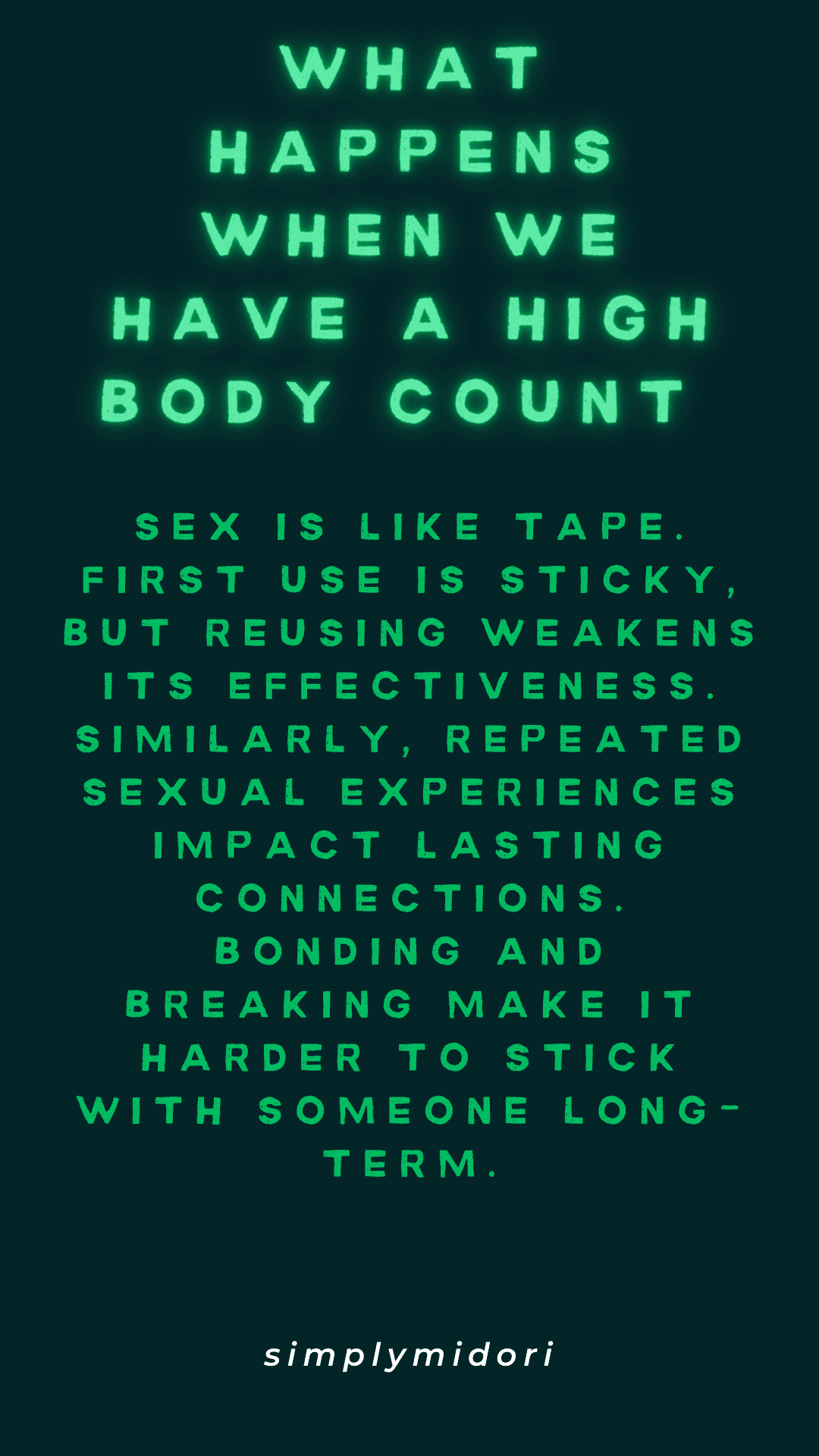Should I Have Premarital Sex?
When it comes to premarital sex, there is no shortage of opinions. Some say sex before marriage is a sexual sin, while others argue it’s a natural part of life. But what does data have to say about the matter?
DISCLAIMER. This article is not about preaching about sexual immorality. Instead, it’s about exploring the facts and data behind this age-old debate. Our goal is to equip you to make your best decision about a premarital sexual relationship.
So, whether you’re a curious individual or someone questioning the benefits of waiting until marriage, read on.
What Is Premarital Sex?
Premarital sex is an incredibly intimate act between individuals who have not yet taken the sacred vow of marriage, nor have they been recognized by society as being united in the institution of matrimony.
Marriage rites vary across cultures, yet the underlying essence remains the acceptance by society. Often, the notion of sex before marriage is not a concern for young males and young females, as they treat sex as a natural response to a natural stimulus.
However, premarital sex is condemned by nearly every human society that deems marriage as a prerequisite for sexual permissiveness. This is particularly true for vulnerable youths at risk of experiencing grave health-related issues.
History Of Premarital Sex

Furthermore, sexual immorality, especially premarital sex, is deemed profoundly unacceptable as the act is part of the marriage rites that allow two to become one. Both religions view all sexual contact as sexual immorality, which influences how people view sexual relations.
However this idea started changing with the rise of civilizations worldwide, the shackles of traditional norms surrounding sex before marriage crumbled. The advent of the “sexual liberation” movement in during the 1960s and 1970s played a pivotal role in legitimizing diverse risky sexual behavior, including premarital sex outside the bonds of marriage (Abraham & Kumar, 1999).
Expressing human sexuality became attached to self-esteem and feeling good. From there, the notion of an active sex life makes you feel good, and that’s all that matters, swept over parts of the world. In our modern society, premarital sex has assumed the role of an everyday occurrence, transcending age groups and touching every aspect of our human existence, especially in developing countries. It is an undeniable force that both captivates and evokes many emotions.
Modern society is undeniably more permissive in various aspects, as pre marital sex has transformed into a commonplace activity that permeates the lives of young adults and beyond. Arumala (2015) sheds light on the prevalence of sexually active teens via public health, as evident through the alarming rates of unintended pregnancies, abortions, sexually transmitted infections (STIs), and tragic fatalities arising from youthful sexual encounters.
Scott’s (2016) data collection corroborates this reality by emphasizing that a vast majority of young people worldwide engage in sexual activity before reaching 19, a critical period of adolescence.
Unveiling the Forces Behind Premarital Sex at a Tender Age
Numerous factors contribute to premarital sex; the young age marks a phase of physical and emotional development. The extraordinary growth and maturation of sexual organs, accompanied by intense emotions, are substantial influences that may prompt young individuals to engage in premarital sex.
Various studies have uncovered other reasons young individuals engaged in premarital sex early on. In Western countries, the family structure is one thing that plays an important role for young people when deciding to engage in premarital sex.
Surprisingly, young people living with single parents exhibit a higher rate of involvement in premarital sexual activity than those residing with parents and other family members (Stewart, Sebastiani & Lopez, 2021).
In developing countries, Mechet (2006) conducted a groundbreaking public health study that revealed a mother’s education, age, ethnicity, and employment status as the key factors influencing young women’s attitudes toward premarital sex. These findings suggest that the home environment plays a significant role in shaping youths’ inclination towards engaging in premarital sex.
Additional public health studies revealed premarital sex could be influenced by various factors that fuel desire, such as the powerful sway of media, the relentless pressure from peers, insatiable yearning for wealth, cultural norms, instances of sexual harassment, curiosity, lax school discipline, school location, religious teachings on sexual immorality, and even literacy levels (Kiragu & Zabin, 2003; Abraham & Kumar, 2007; Ajiboye, 2009; Adegoke, 2019).
Gender Differences Views On Premarital Sex

Interestingly, the findings unveil that young men, in contrast to women, adopt a more reined-in perspective when indulging in casual intimacy. Moreover, an intriguing study further reveals that university students can be classified based on their aspirations for ideal relationships.
Those who long for an exclusive and committed partnership tend to engage in fewer hookups and “friends with benefits” arrangements, unlike their counterparts categorized under “flexible” connections.
Encapsulating the dynamics of relationships among Toledo adolescents, a 2010 study points out that girls tend to have more nondating/dated partners compared to boys.
What Is The Science Behind Human Intimacy?
Do you ever wonder why we crave intimacy so much? Why we long to feel connected to another person on a deep, emotional level? It turns out we’re hardwired for it.
At our core, we seek intimacy, and sexual pleasure is just one way we express that. Whether you look at it biologically, psychologically, philosophically, socially, or spiritually, the desire for intimacy is a fundamental part of who we are.
But what makes us unique from other animals is our ability to form lifelong connections with one person. Sure, we have systems in our brain that push us towards mating – like most animals – but we also have additional systems that wire us to connect with one person for life.
The Sticky Tape Effect: The Science Behind Sexual Bonding
Have you ever wondered why some people seem in love at the drop of a hat while others struggle to form deep connections? Well, it turns out that there’s more to sexual intercourse than just a momentary experience of sexual pleasure.
When we have sexual relations with someone, our brains release a cocktail of chemicals that bind us together. For men, it’s vasopressin. For women, it’s oxytocin. These chemicals create a sense of trust, intimacy, and attachment that can last long after the act itself.
But here’s where it gets interesting.
If we bond and then break that bond, we damage our ability to form strong connections in the future. It’s like a piece of tape. The first time you use it, it’s super sticky. But if you peel it off and try to use it again, it’s less effective. And if you keep doing that, eventually, it’s barely sticky at all.
So, what does that mean for our relationships?
Well, it means that every sexual experience we have has the potential to affect our ability to form lasting connections. The more we bond and break, the harder it becomes to stick with someone for the long haul.
So, the next time you’re getting ready for sexual intercourse, think about the sticky tape effect. Is this someone you want to stick with for the long haul? Or are you just peeling off another piece of tape?
Surprising Facts About Couples Who Wait To Have Sex Before Marriage
-
Couples who wait to have sex before marriage have a higher relationship satisfaction (20% more than couples who are sexually active)
-
Couples who wait to have sex before marriage have better communication patterns (12% more than couples who have sex before their wedding night)
-
Couples who wait to have sex before marriage have a lower consideration of divorce (22% lower than couples who have an active sex life before marriage)
-
Couples who wait to have sex before marriage have a better sexual life (15%- these couples have great sex and have sex more often than couples that have sex before marriage)
The Institute of Family Studies published this study in the American Psychological Association’s Journal of Family Psychology a few years ago. This study involved a national sample of married individuals who participated in the popular online couple assessment survey called “RELATE.”
The study found that the longer a dating couple waited for premarital sex, the better their relationship was after marriage. The above statistics reflect couples who waited until marriage to have sex reported higher relationship satisfaction (20% higher), better communication patterns (12% better), less consideration of divorce (22% lower), and a better sexual relationship (15% better) than those who started having sex early in their dating.
But wait, there’s more!
The study also found that even those who engage in sexual behavior later in their dating relationship but before marriage still experienced some of these positive effects—the benefits were about half as strong.
So, what does this all mean?
Whether you believe in not having sex before marriage or you believe in holding off on sex until you’re in a committed relationship, it’s clear that patience can pay off in more ways than one!
But Don’t I Need to Test Drive the Sex Before Marriage?

The results indicated that the sooner couples engaged in sexual activity negatively affected marital quality.
Before you roll your eyes and dismiss this as old-fashioned thinking, hear us out. We’re not saying that abstaining from sex before marriage is the only way to have a happy marriage. We are saying that the data suggests that waiting can have some significant benefits.
The study also showed that couples who waited built significantly stronger emotional connections to their partner than couples who chose not to wait.
Why?
Well, we can assume that instead of focusing solely on sexual attraction and pleasure, you’re forced to communicate, connect, and create a foundation of love and respect. Therefore when you finally do have sex, it’s with someone you know and trust intimately, which makes the experience more satisfying.
Is Sex All Day Everyday What Love Is About?
Even more surprising, this same study found that rapid sexual involvement early on also has adverse long-term implications for relationship quality. The researchers’ analyses suggest that delaying sexual experiences is associated with higher relationship quality across several dimensions.
The evidence appears to point to two reasons partner selection and sexual symbolism.
Intentional partner selection: When we engage in sexual activity too soon, too often, our brains rapidly release bonding hormones that cloud our judgment. Inevitably we become attached to someone who might not be the best fit for us in the long run. By waiting for sex, we have the time to get to know our partners deeper and make intentional choices about who we want to be with.
Related Reading: How Love/Sex Early On Blinds Us To Their Red Flags
Sexual symbolism: Sex carries a lot of weight in our culture. It’s not just a physical act—it’s a symbol of intimacy, commitment, and love. When we have sex with someone, we communicate a message about our feelings for them. By waiting to have sex, we can ensure that our actions align with our intentions and build a strong foundation for a healthy relationship.
How Sex Before Marriage Effects Our Partner selection
Most of us have experienced the “honeymoon” phase of a relationship; we see the other with rose-colored glasses, which makes it difficult to see them with an honest perspective. Early sex creates a sort of counterfeit intimacy that makes two people think they are closer to each other than they really are. By practicing sexual restraint, we can ensure that we are making intentional choices about who we let into our lives.
Why Sex In A Relationship Isn’t The Most Important Factor
Sex is a physical expression of love, intimacy, and desire that can leave us feeling euphoric and connected to our partners. But sex makes up a small percentage of our time with our significant other.
Anyone who has been in a long-term relationship can attest to this. When you’re not busy in the bedroom, you do other things together, like hanging out with friends, cooking dinner, or binge-watching your favorite shows.
The truth is, a successful relationship requires more than just physical attraction and sexual chemistry. It takes effort, patience, and genuine connection to build a foundation that can withstand the test of time.
While you can initially be drawn to someone because the sex is mind-blowing, that’s not enough to create a lasting bond. Relationships require shared experiences, laughter, and sometimes even tears to deepen your connection with your partner truly. If you’re only in it for the sex, the relationship based on data may not work.
What Does Sex & Cake Have In Common?
Picture this: you’re on a first date with someone you really like. The conversation is flowing, the chemistry is undeniable, and things are getting hot and heavy before you know it. You end up sleeping together, but afterwards, you’re left feeling empty and unfulfilled.
This scenario is all too common today, where casual sex is often seen as the norm.
But think of sex like a cake. In this cake, emotional intimacy is the batter, and sexual intimacy is the icing. While you can have a cake without icing, it’s not nearly as satisfying or complete. More importantly for most of us, if you only eat the icing, you will get a stomach ache!
Emotional intimacy is the foundation for sexual intimacy. When you take the time to build trust, support, safety, and security with your partner, the physical aspect of your relationship becomes a meaningful symbol of that emotional connection.
The Data Concludes: Waiting To Have Sexual Relations Is Key For A Healthy Relationship

Good scientific data suggests that waiting is better than not.
Reminder: we do not want anyone to read this and feel shame; it’s about using every piece of information available to find hope, wellness, and life to bring order to your life.
But what does waiting really mean?
Does it mean abstaining from all physical intimacy until marriage?
Not necessarily. Waiting can mean different things to different people. It’s about being intentional with your actions and understanding their impact on your future relationships.
One of the greatest benefits of waiting is the ability to form a deep, lasting bond with another person. This goes beyond just neurochemical changes in your brain and how you relate to others.
FYI: Although science tells us that engaging in physical intimacy with multiple partners can make it harder for us to form meaningful connections in the future, we believe there is hope! Regardless of how many people you may have been with, for being restored in your ability to form these bonds.
Share With Us
We invite you to share your stories, breakthroughs, or relationship challenges with us, as we are here to assist you in navigating through them!
Feedback
If you have any ideas, or feedback regarding our blog, we would love to hear from you! Feel free to email us or share your comments below. Your input is valuable to us!
Join Us in Building Stronger Connections Worldwide – Spread the Love, Share with a Friend!












